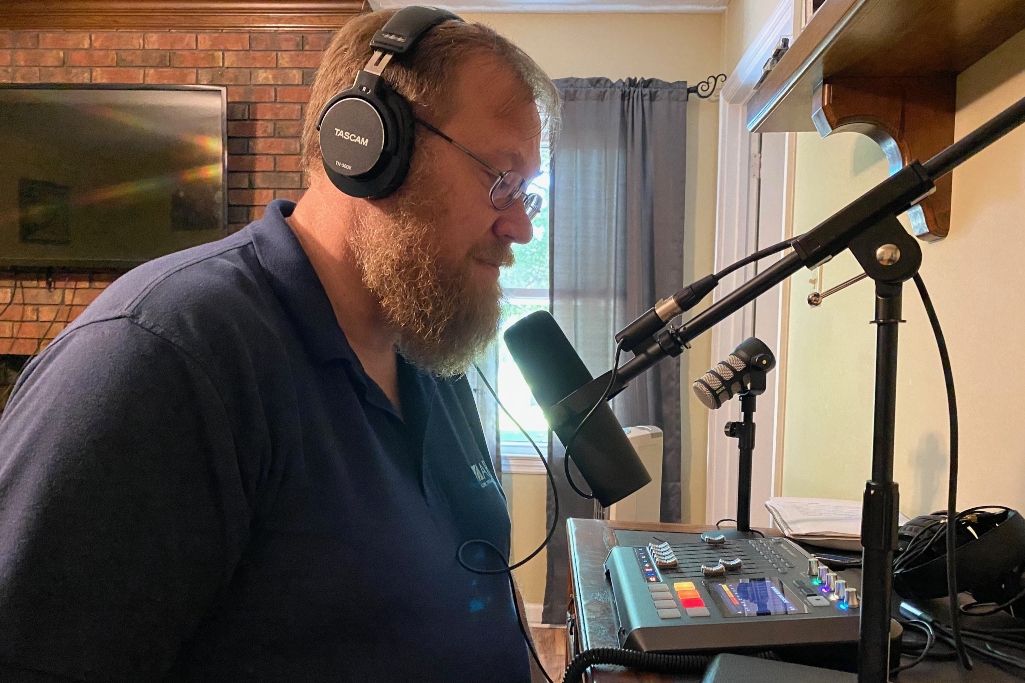Searching for a new pastor isn’t easy. It’s even harder for a church that doesn’t know where it’s going.
But Eddie Thompson says it’s all too familiar in Southern Baptist life. He speaks with the voice of experience as the recently retired senior consultant of pastoral ministry at the Baptist State Convention of North Carolina (BSC).
Thompson describes a cycle where churches hire pastors with an ambitious vision for their church, and they adopt it as their own. The pastor leaves. Then the church finds a new pastor with a new vision. After three or four of these transitions, many are left wondering, “Who are we? We know who [the pastors] are, but who are we?”
The ministry of a transitional interim pastor helps a church answer that question.
“This isn’t the way to call a pastor,” Thompson tells churches as they begin to look for their pastor. “Let’s ask during our interim period: Who are you? What has God called you to do? Then, with the help of the transitional interim pastor, we’ll help you find a pastor that matches that vision.”
Thompson helped start the statewide transitional interim ministry in 2014 after discovering churches were looking for more than they had previously seen in interim pastors. No longer did churches simply need someone to come in and fill the pulpit while the church looked for a new pastor. They needed someone who could work strategically with the church to prepare them for their next pastorates.
In the past eight years, North Carolina Baptists have trained more than 100 interim pastors for this ministry.
Thompson says the transition usually takes 18 to 24 months, which is evenly split between a church defining its vision and actively searching for its next pastor.
“We figure out who they are, and then we help them find the pastor that fits their vision instead of finding pastors with great visions – and then swapping them out,” Thompson said.
As the churches work through their visions with the interim pastor, they focus on five questions:
- Who are you? (Heritage)
- What has God called you to do? (Mission)
- What kind of leader do we need? (Leadership)
- Who do you belong to? (Connections)
- Where do you want the church to be in five years? (Future)
The third question is the toughest for most churches. Many churches “get dazzled by new guys,” says Thompson. They then forget to ask themselves whether the pastor fits who they are. Most churches take a couple of months to answer each of the five questions.
Sometimes churches can get impatient with the speed of the process. When churches are ready to move to a new pastor without working through all the steps, Thompson encourages churches to look at their situation like what happens with the loss of a spouse.
“If you had been married for 40 years and your wife died suddenly, would you get married tomorrow?” Thompson said. “Of course not. That’s what you’re doing as a church every time your pastor leaves and you go get another pastor without figuring out who you are.”
Churches also need some space between pastors to work through the feelings associated with losing a pastor.
In the past eight years, North Carolina Baptists have trained more than 100 interim pastors for this ministry.
John Ewart, a professor of missions and pastoral leadership at Southeastern Baptist Theological Seminary, has been helping churches through pastoral transitions for over two decades. He estimates he has trained more than 260 pastor search teams.
Ewart’s ministry comes from his own experiences as a pastor leading churches through revitalization periods. In the last few years, he has worked almost constantly in transitional pastorates. Yet, he says, he’s very specific about the kinds of interim ministry he does.
“I’m not there just to preach until you find the next pastor,” said Ewart, who works through A New Normal Consulting and Conferences. “There are plenty of other people who are wonderful and better preachers and highly qualified to do that. That’s not what I do. I’m going to be working through a more intentional process.”
Before Ewart starts an interim ministry, the church must sign a document recognizing the process he will implement. That process begins with a careful assessment – both quantitative and qualitative – of the church. He and his team interview church members, initiate church health perception surveys and conduct in-depth studies of the community. By the time the team delivers the final report to the church, it includes hundreds of pages of data.
Churches can then use this data to help them make a better decision on the pastor to call.
“One of the big mistakes, I think, that a lot of churches make is that their pastor search processes are ill-informed,” Ewart said. “They don’t even know what kind of candidate they ought to be looking for because they’re probably just basing it on what their experience of the past is.”
Ewart walks churches through five phases, centered around where the church is currently, where the church should be and then bridging the gap between the two.
“This is an interim,” Ewart said. “We don’t want to set things in stone. But at the same time, these are ideas we believe we need to move forward in as a church, and we can pass it on to the search committee. If we learn that the church isn’t doing well in evangelism or discipleship, they can ask the candidates about their vision for evangelism. In other words, they have key questions they can ask throughout the process.”
Thompson says good interim pastors tend to be nearing retirement age and have availability to serve. They also should be willing to work within the BSC’s established plan. It’s critical that interim pastors don’t fall back into a habit of simply providing the preaching.
Churches also need some space between pastors to work through the feelings associated with losing a pastor.
Ewart recommends that pastors interested in an interim role should be strong at procedural and expository preaching. He typically preaches through either the first 13 chapters of Acts or the book of Nehemiah. In doing so, he focuses on the mission of God and how to be a healthy church.
Because interim pastors typically need to be able to lead staff, deacon and elder meetings, they need to be effective leaders as well. Often, Ewart adds, churches who have recently lost a pastor have a leadership vacuum that the interim pastor must fill.
Thompson encourages any church without a pastor to enter a process like the one developed by his team at the state convention.
“We’re sending them a trained interim pastor,” Thompson said. “We can help them clean the slate before the next guy comes in. Don’t you want to rid yourself of the conflict before the next pastor comes so he doesn’t have to deal with it?”
The transitional interim ministry is part of the Ministry Strategies Group of BSC. For more information, please contact Austin Pulliam, executive assistant, at [email protected] or Allan Blume, transitional interim contractor, at [email protected]. To learn more about Dr. John H. Ewart’s ministry, A New Normal: Church and Denominational Consultation and Conferences, please visit his website needanewnormal.com, email [email protected] or call (919) 761-2143.
(EDITOR’S NOTE – Tobin Perry is a freelance writer with more than 20 years of writing experience with Southern Baptist organizations. He can be reached at TobinPerry.com.)


